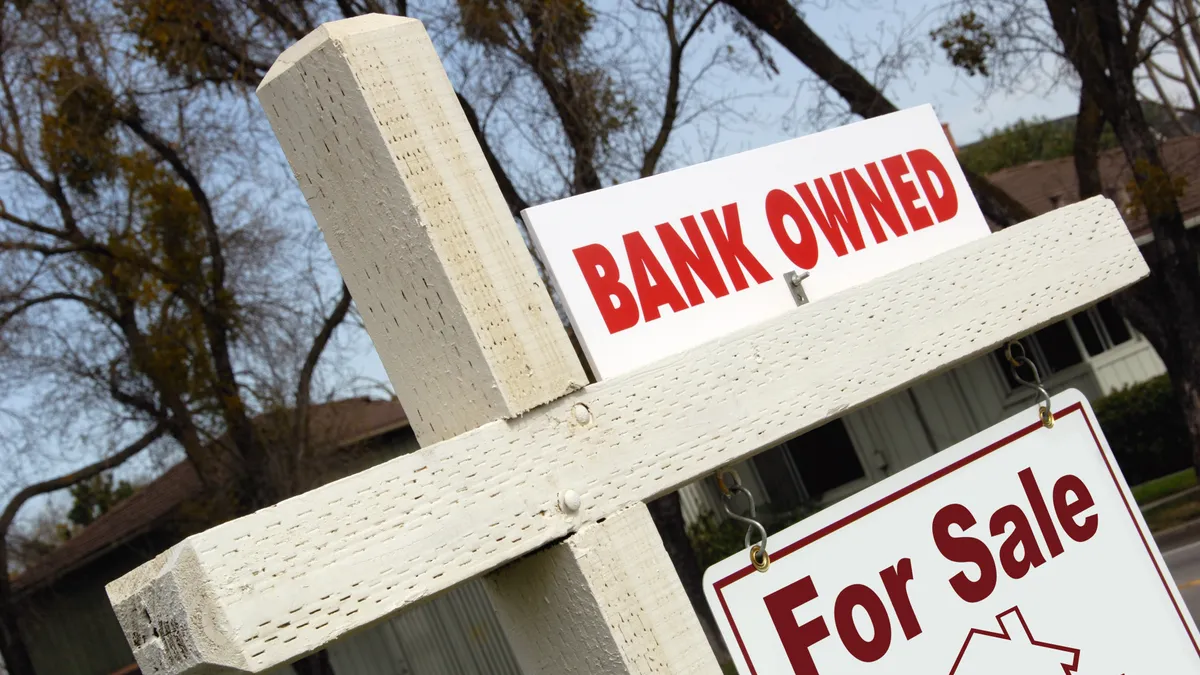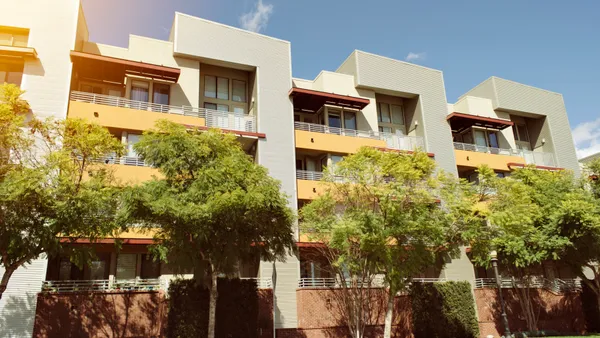Dive Brief:
- Multifamily’s distress rate increased 40 basis points to 12.9% from December to January, according to a report from data firm Cred iQ. By comparison, apartments, which have the second highest amount of problem loans in commercial real estate, had a 2.6% distress rate in January 2024.
- Multifamily commercial mortgage-backed loan delinquencies increased for apartments, inching up four bps to 4.62% in January, according to a report from data firm Trepp. A year ago, the rate was 1.91%.
- However, the servicing rate for CMBS apartment loans fell 30 basis points in January to 8.42%, according to Trepp. A year ago, multifamily’s special servicing rate was 2.34%.
Dive Insight:
The Cred iQ total distress rate for commercial real estate rose 90 basis points to 11.5%. The firm’s special servicing rate increased by 50 basis points to 10.3%.
However, the picture from Trepp was mixed across CRE. The CMBS servicing rate posted its first decline since December 2023, falling two bps to 9.87%. The overall delinquency rate decreased by one bps to 6.56% in January.
As distress picks up, some apartment investors are finding deals. In January, Dallas-based S2 Capital announced the acquisition of a distressed portfolio of five properties in Dallas and Nashville and Knoxville, Tennessee, formerly owned by troubled Austin-based syndicator GVA Real Estate Group.
Others are gearing up to buy properties that may face challenging financing situations.
In January, Denver-based Platte Canyon was formed with $30 million in capital from funds managed by Culver City, California-based private equity firm Inceptiv to invest in middle-market multifamily value-add opportunities in five markets to start. On a levered basis, Platte Canyon will acquire $750 million to $1 billion of distressed opportunities, according to founder Brennen Degner.
However, the total amount of distressed apartments on the market is far less than many apartment owners anticipated.
“We haven't seen a lot of distress, frankly,” said Brad Hill, president, chief investment officer and incoming CEO at MAA, on the Memphis, Tennessee-based REIT’s fourth-quarter earnings call earlier this month.
Hill said MAA would continue to focus on buying new properties in lease-up, where some developers are motivated to sell and can get similar returns whether they transact before or after stabilization.
“We do think that those will continue to face a bit of pressure, just given the amount of supply that's out there,” Hill said.
Click here to sign up to receive multifamily and apartment news like this article in your inbox every weekday.











